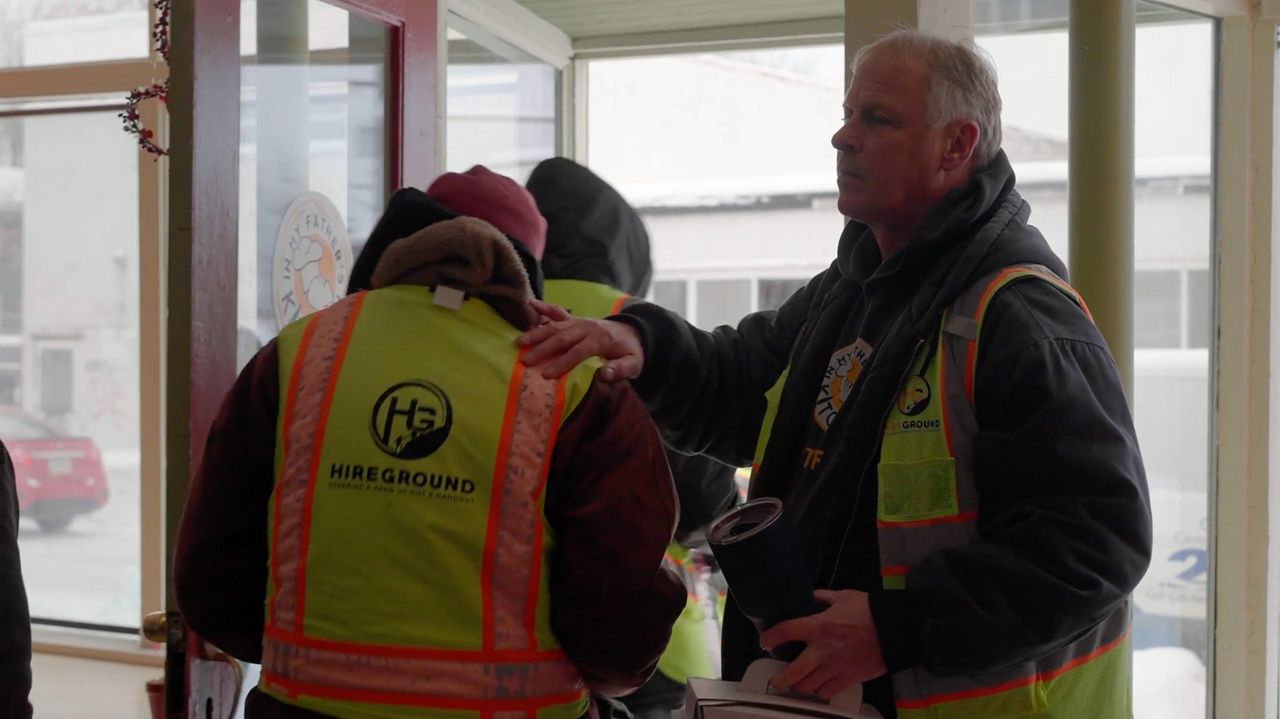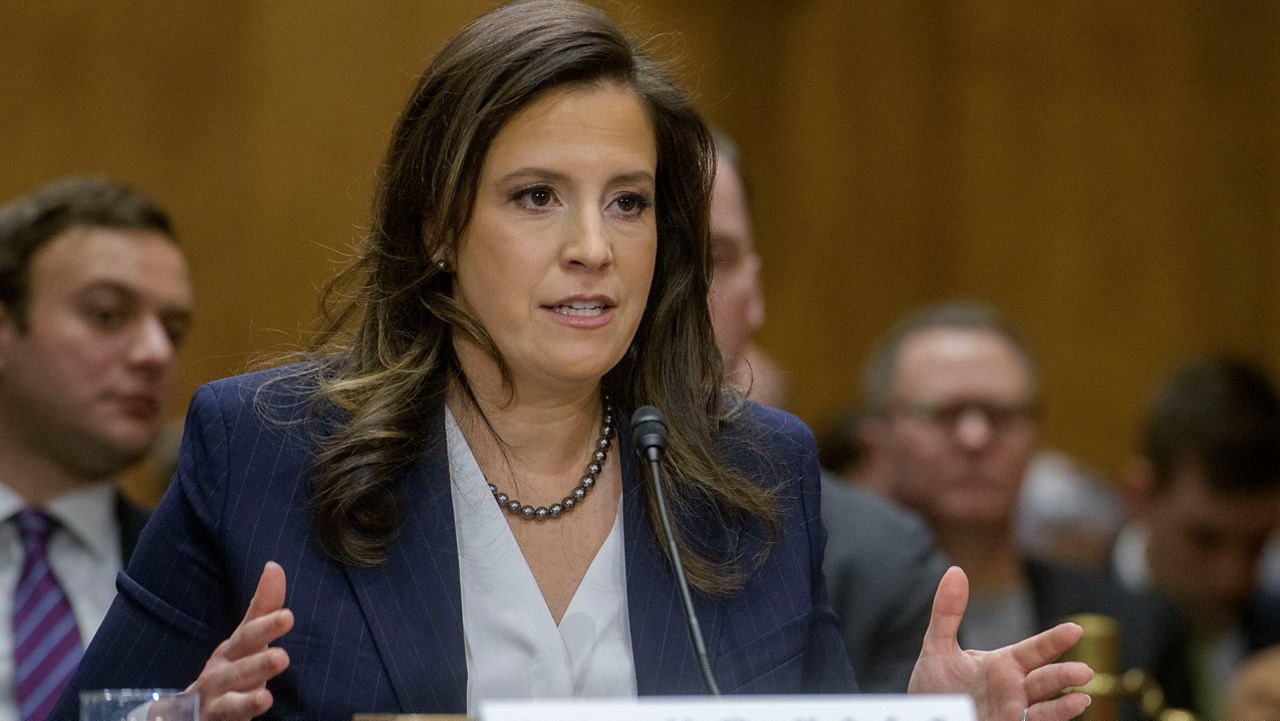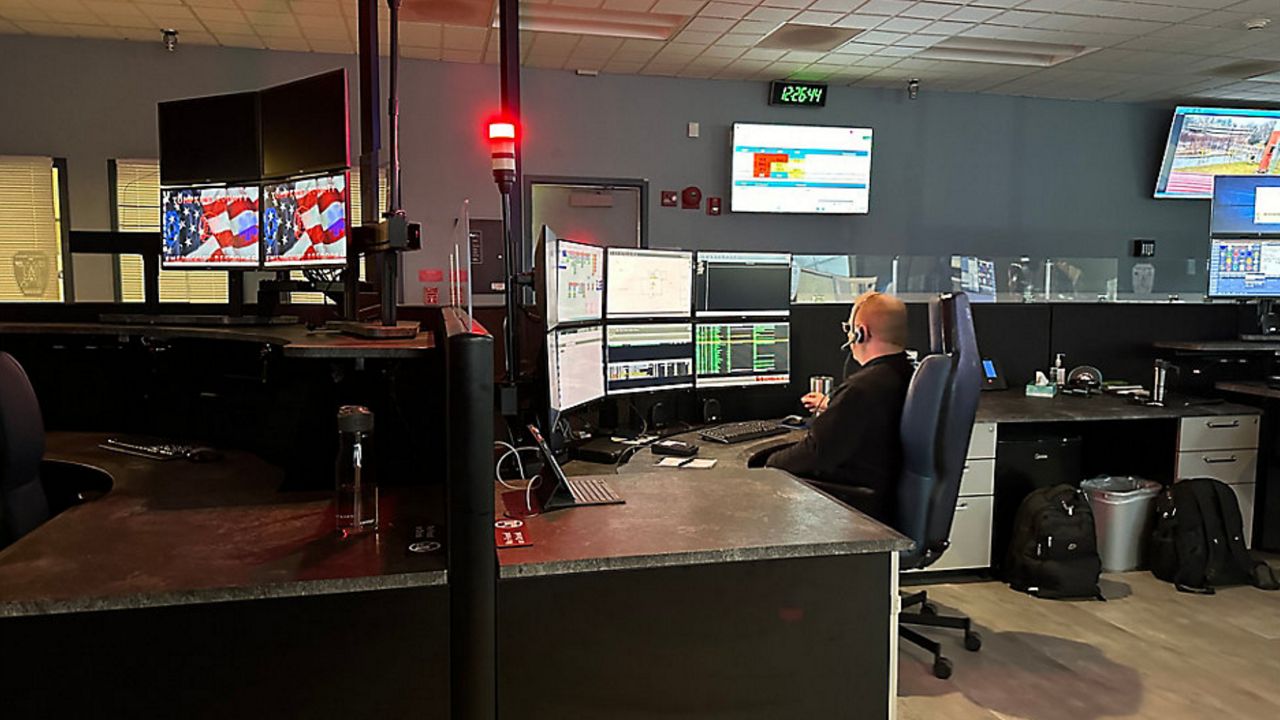Post-service life for veterans already has its challenges, with employment being one of them. Often, veterans struggle with finding a job.
“I had a hard time finding employment because I didn’t have a college degree in my field. Even though I had 15 years of experience doing what I did in the military and I was seeking that same career field, there were a lot of places that overlooked me simply because I didn’t have a college degree,” said Charlie Poag, a veteran.
Poag left the Marine Corps in 2017 after serving for a little more than 16 years. His background was combat camera and communications. Thanks to the G.I. Bill, which was established post-World War II to assist veterans with funding for their education, Poag could get a degree.
“Graduated from Newhouse and around that time period, this building was coming up. They were finishing it and building it. And I got involved with the veteran community on campus,” said Poag.
Now, he is the communications manager for Syracuse University’s D’Aniello Institute for Veterans and Military Families. The national nonprofit organization supports veterans and military families as they’re transitioning to their post-service lives.
“A lot of the challenges sometimes can be just being unaware of the complexities of civilian hiring. Some industries have set schedules of whenever they’re hiring and they only hire at that time of the year. If a veteran hasn’t done the work to transition into that job ahead of time, it can be very difficult for them to find their footing,” said Poag.
Poag says when a veteran is a year from leaving the service, it is important to network to find programs and pathways to land a job.
“For employers to understand that these men and women have the skill set, they might not have it on their resume,” said Joan Lynch, chief content and programming officer at Working Nation, a non-profit media company finding solutions to the nation’s labor crisis.
Lynch is the daughter of a veteran.
“We say this at Working Nation a lot. It is not charity to employ a veteran, it’s good for business. It’s good for your bottom line and that data exists, both in terms of retention and skill set for these jobs that we very much need to fill for our economy,” said Lynch.
“In certain areas, employers, if they wanted to offer more programs to help train veterans to come into their one of work, whether that be on the job training or more formal certification program, whatever It may be. Putting effort into those sort of programs so if a veteran says I want to go into a STEM field, but maybe that’s not my background, there is a pathway for them,” said Poag.












